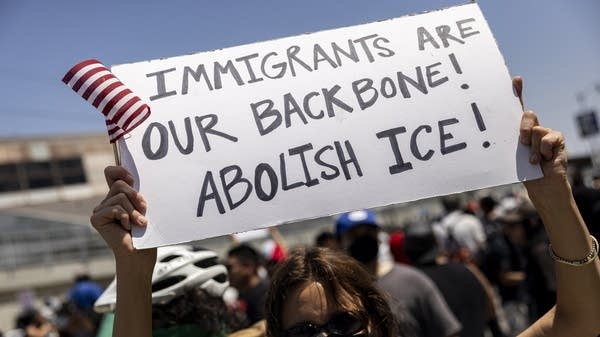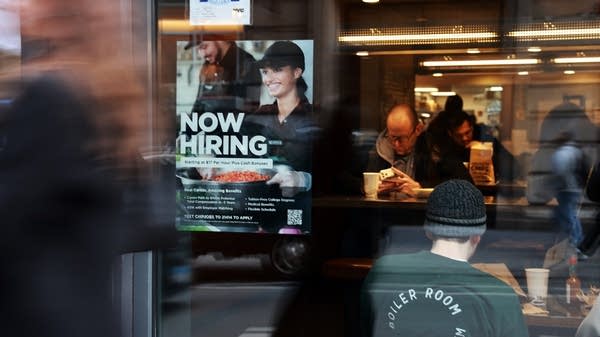How immigration raids in California reverberate across the labor market
Undocumented workers form a key part of the economy in a number of industries.

As the immigration raids and protests in Los Angeles continue, there will be immediate and long-term effects, of course, for the individuals and families involved. Increased immigration enforcement across the country also has effects on the labor market, both locally and nationally.
About a third of domestic workers in the U.S. — nannies, house cleaners and caregivers — are immigrants. And many are undocumented, said Ai-jen Poo, president of the National Domestic Workers Alliance.
“People are afraid to go to work. Entire sectors of the economy will slow, and there will be workforce crises,” Poo said.
There already is one in health care, where a shortage of home health aides has been exacerbated by the pandemic and an aging population.
“It’s kind of an all-hands-on-deck situation where we’re gonna need a strong immigrant workforce and non-immigrant,” Poo said.
Undocumented immigrants work across many essential industries like hospitality and construction — jobs that often pay less and offer fewer rights for workers. An estimated 45% of agriculture workers are undocumented, according to the Center for Migration Studies.
“We know that immigrants tend to move where there are jobs and they tend to move where they have social networks,” said Julia Gelatt, associate director of the U.S. Immigration Policy Program at the Migration Policy Institute.
Those essential industry jobs and social networks are especially prominent in California — a large state with a big economy and deep ties to Latin America. New York, Illinois, Texas and Florida also have high concentrations of undocumented immigrants.

But Gelatt is also worried the Trump administration’s immigration policy will discourage legal immigrants who want to come to the U.S. specifically to work.
“Immigrants have high labor force participation rates, especially immigrant men. They tend to be higher than the U.S.-born population.” Gelatt said.
And the country will need more of those workers to fill the gap left by the loss of undocumented workers, according to Daniel Costa, director of immigration law and policy research at the Economic Policy Institute.
“We’re going to see a really big push by the employer community to replace a lot of these workers with temporary work visas, so programs like H-2A and H-2B,” he said.
Those visas are primarily used in agriculture, construction and hospitality.
Big picture, Costa said these raids could hurt the labor market. “Immigration enforcement does not help U.S. workers, it does not open up jobs. There’s no evidence that that happens.”
A study from the University Colorado Denver estimated that for every 1 million workers deported, 88,000 U.S. native workers lost employment. With fewer workers, businesses have a harder time investing in expansion, and there are fewer consumers in the economy.













